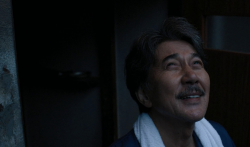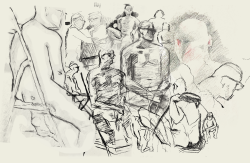It’s hard to imagine a Healy Lawn devoid of Vineyard Vines and Sperrys. But even Georgetown had an edgier age when The Who and The Grateful Dead were typical lineups at our spring concert. Beyond the gates, anti-establishment America flourished, and Jonathan Lethem’s new novel Dissident Gardens pulls you by the hand through a maze of iconic rebellious decades.
The novel is a whirlwind with a vast and wild cast of characters, but just like a buzzed traipse through a city you’re not familiar with, Dissident Gardens doesn’t leave you with a full image or well-rounded story. Instead, you feel like Lethem is about to tack on a “you just had to be there” to the end of his tales.
Mainly set in New York City, Dissident Gardens is a good way to jump into contemporary fiction. It’s stimulating, but I could put it down without too much regret. That’s the risk with an ensemble cast and overlapping stories—they don’t often hold together with the same power as one potent tale does. Still, Lethem is one of my favorite contemporary writers, and his latest novel is worth the read.
Dissident Gardens begins in the 1930s in Sunnyside Gardens Housing Complex, Brooklyn. These “dissident gardens” are run by a communist cell and a neighborhood watch, headed by Rose Zimmer—a firebrand Jewish New Yorker, communist activist and young mother.
Lethem based Rose on his own mother, activist Judith Lethem. In an Art of Fiction interview with The Paris Review, Lethem described his politically charged childhood. “Listen: The first third of my life was spent at political demonstrations, shouting my lungs hoarse. … When you’re in the center of demonstrations, you believe. My life was a demonstration,” he said.
Dissident Gardens is still a book about people, but it’s also about the inevitable submersion of life in politics. Not good versus evil, not right versus wrong, but human meets human—and humans are political animals, in more than one sense. The history of the radical American leftism he paints is instructive, comical, and colorful. But the characters outshine the politics.
Rose’s daughter Miriam is “a Bolshevik of the five senses,” just like her mother. She dances through the 60s and 70s in the streets of New York and eventually in rebel camps in the Nicaraguan jungle. When you first meet her, she is a know-it-all 17-year-old: “Miriam felt the freedom accorded to nobody special as a power equal to the Empire State’s mass and force. Had anyone ever already known what Miriam had at seventeen? It seemed unlikely.” She may still be nobody special in history, as proper Marxist equality would recommend, but she’s the most compelling character of the novel.
Cicero Lookins is also a stand out. He is a massive, gay, black and angry college professor in Maine—where he is an anomaly, self-isolated to avoid inevitable marginalization. He is the son of Rose’s longtime lover and is taken under her keen, critical eye. But just like Rose, who adores her daughter even as she puts her head in an oven, cynical Cicero falls under Miriam’s spell: “Cicero’s sudden idol had a knack for making what he’d never heard of until that instant sound exactly like the life he craved for himself: dignified planet, Che Guevara, McSorley’s, falafel, Eldrige Cleaver, hashish, the Fugs, Ramblin’ Jack, Dim Sum.”
Lethem’s novel has the same knack, at times. It is a hodgepodge of events, desires, sexual orientations, nationalities, origins, and characters, but they swim together in a way that somehow makes sense, pulled along by the dialectical materialism of Marxist history.
Dissident Gardens eventually cycles to the nebulousness of the Occupy Wall Street movement, where there are no communist cells and protest has taken on a distinctly millennial flavor. A “Marxist manic pixie” protester, Lydia, says, “It’s wherever you are, right now. … Just living differently.”
No longer do we have the guidance of Marxist ideology and underground communist hierarchy. Modern rebelliousness is a very different kind of leftism from Rose or Miriam’s activist days. Maybe this is just the nature of the present—it lacks the selective highlight reel nature that we view the past with.
Dissident Gardens didn’t leave me nihilistic, though. On the contrary, the energy of the hippy, free-love New York that Lethem adores and that his characters bring to life makes the novel well worth the read. And if you’d like to relive those bygone eras that Dissident Gardens drags you through, head to Politics and Prose on Oct. 3. Jonathan Lethem is speaking, and I’ll be there, channeling Miriam and expecting a wild night out in our own city afterward.




